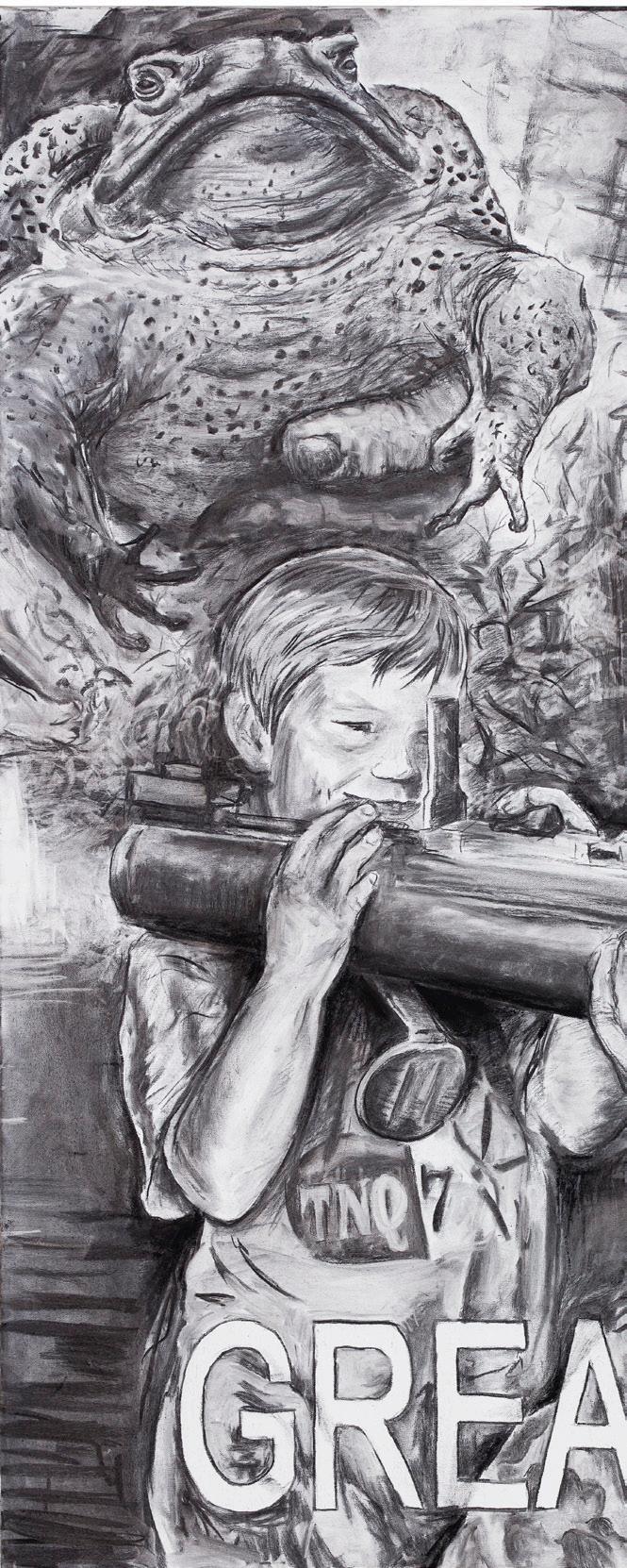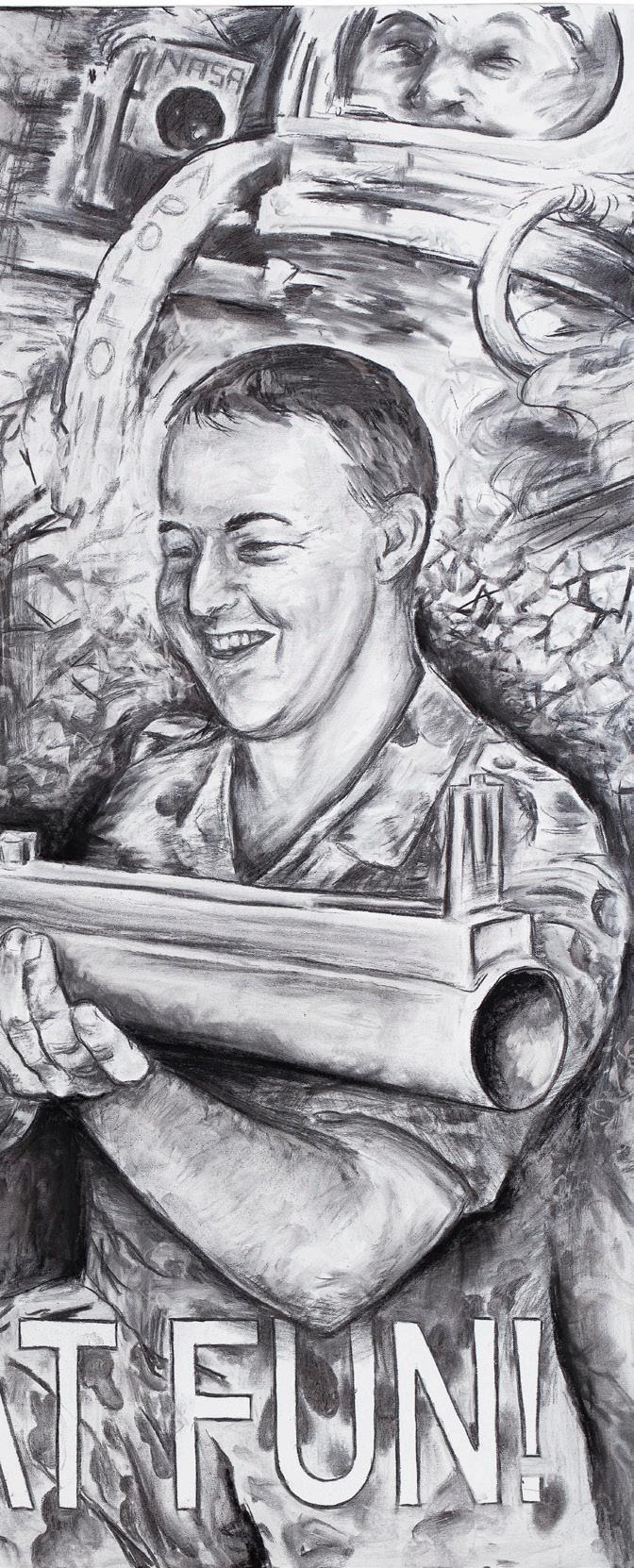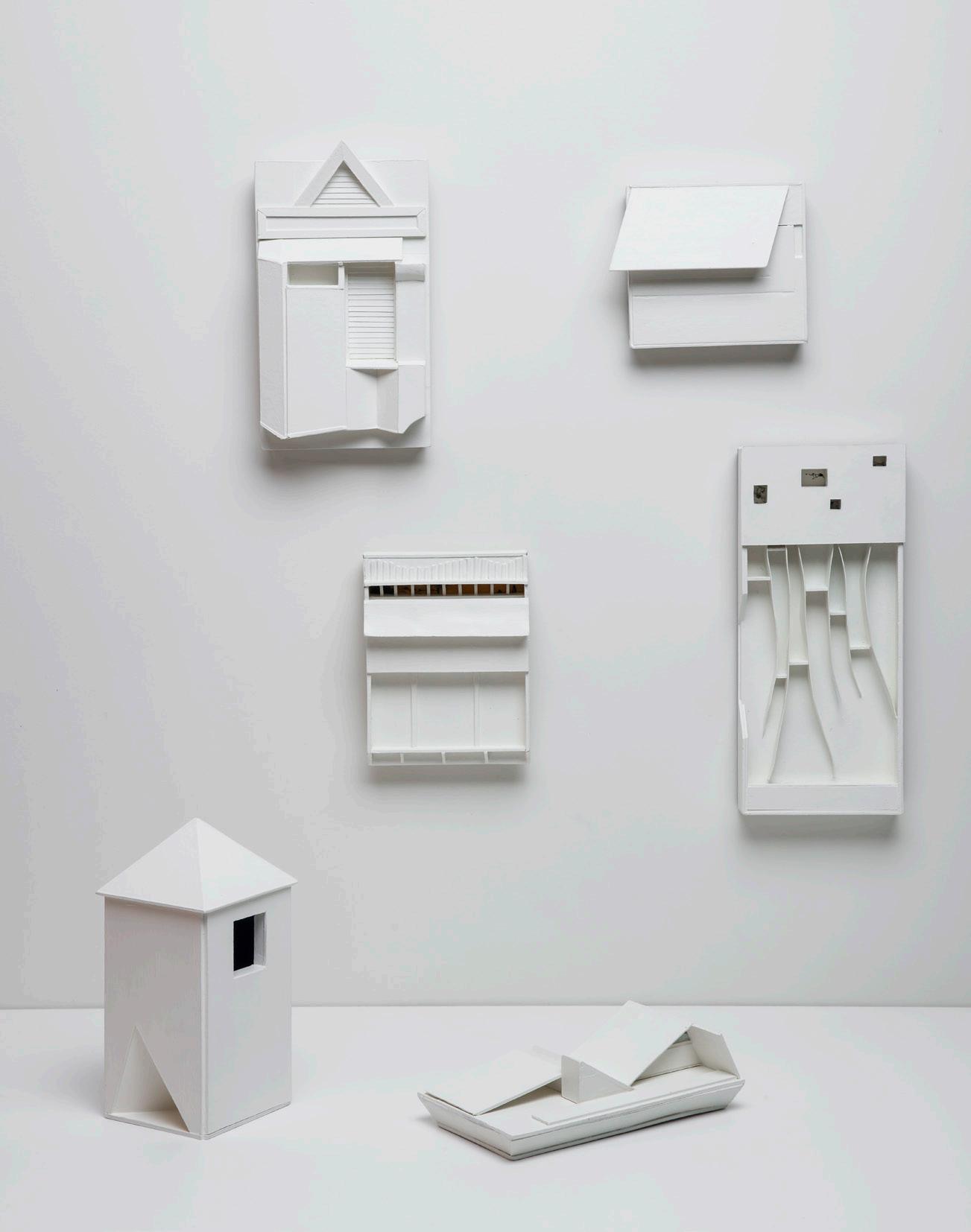
2 minute read
Rob Douma
Reviewing the TNQ7 media archives I discovered two digital media files that were particularly interesting, an interview with a former soldier and a news segment about a primary school fệte.
Brian Wizard was discussing his book Permission to Kill. Wizard was an American soldier who experienced the Vietnam War in 1968 as a helicopter door gunner. Post-war, he had penned his memoirs whilst living in North Queensland. The interviewer’s introduction: “Much of Brian’s book is a day-to-day account of action in the field, the horrors of the Vietnam War. How was it for you?” Wizard’s response was an enthusiastic: “Great fun!”
Wizard’s candour surprised me. As a former soldier myself, his attitude resonated deeply. Indeed moments in combat can be quite fun. Extreme danger amplifies excitement resulting in an exhilarating experience. Nowadays, expressing this sentiment is frowned upon for the fear of glorifying war. The interview was filmed in the early 1980s, a time when home computers were new and exciting technology. Wizard slowly typed away on a large chunky keyboard. A tiny 15 cm screen on a small television flickered in dull greens as words slowly appeared. The monitor displayed a passage from his book; a thought provoking statement considering current gender politics and the culture of political correctness.
Wizard’s motives for joining the war were being questioned.
“Why not? It looked like fun! Flying around in a quarter of a million dollar helicopter. Loaded with weapons. Permission to kill, too. Hell, that’s every young boys dream come true.”
The second news segment was about the military. Observing the Army operate around North Queensland is normal and unsurprising given the large military footprint in Townsville with the installation of Lavarack Barracks in 1966. TNQ7 news footage showed a local primary school fệte with families enjoying games and activities. Soldiers proudly displayed their military vehicles and provided weapons for eager children to play with. Whilst some people naïvely view this as showing the community what the army does, its true agenda is the normalisation of military culture. It is an insidious part of a recruiting plan, one that also deliberately targets youth in low-income demographics. Examples of organisations taking advantage of the ignorance of young people to influence their values and beliefs include the Nazi Party in the 1920s with their highly successful Hitler Youth programs.
Shocked by the happy faces of the children playing with weapons of extreme violence, I felt compelled to create a work that was critical of recruiting tactics and to examine the role of the media, complicit by conveying propaganda. Influenced by Picasso’s Guernica as an exemplar anti-war statement, the work is a dreamscape of images that represent what young boys (stereotypically) aspire to enjoy: guns, girls, and space-travel. The cane toad, a signifier of North Queensland, is symbolic of the gross things that boys like and additionally serves as a further reference to Guernica, which also featured dead and dying animals from the horrific bombings during World War II.














